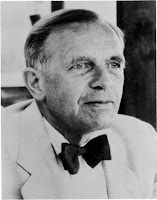Wilhelm Röpke devoted his scholarly career to combating collectivism in economic, social, and political theory. As a student and proponent of the Austrian School, he contributed to its theoretical structure and political vision, warning of the dangers of political consolidation and underscoring the connection between culture and economic systems. More than any other Austrian of his time, he explored the ethical foundations of a market-based social order.
As he explained in the first chapter of his most famous work, A Humane Economy, his ethics were rooted in the Christian tradition.
My picture of man is fashioned by the spiritual heritage of classical and Christian tradition. I see in man the likeness of God; I am profoundly convinced that it is an appalling sin to reduce man to a means (even in the name of high-sounding phrases) and that each man's soul is something unique, irreplaceable, priceless, in comparison with which all other things are as not. I am attached to a humanism which is rooted in these convictions and which regards man as the child and image of God, but not as God himself, to be idolized as he is by the hubris of a false and atheist humanism. These, I believe, are the reasons why I so greatly distrust all forms of collectivism.
People may be led by Christian and humane convictions to declare themselves in sympathy with socialism and may actually believe that this is the best safeguard of man's spiritual personality against the encroachments of power, but they fail to see that this means favoring a social and economic order which threatens to destroy their ideal of man and human freedom.
For some of the best of Röpke's economic work, I recommend his Economics of a Free Society and Against the Tide.

No comments:
Post a Comment